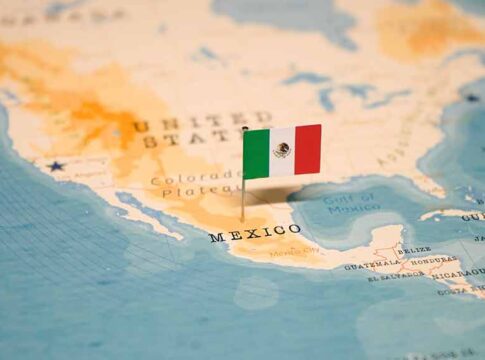With Donald Trump taking office, the southern border will be a top priority. However, Mexican Senate reform raises concerns about cartel influence and jeopardizes border security measures. The Mexican Senate passed a judicial reform that allows the general public to elect judges. This raises concerns that violent cartels are influencing the general electorate. Critics say the reform undermines judicial independence while strengthening the ruling Mirena party and its power.
Controversial Judicial Reform Raises Alarm
Mexico’s Senate has approved a controversial judicial reform that allows judges to be elected by popular vote, sparking widespread concern about the potential for drug cartel influence and the erosion of judicial independence. The reform, seen as a victory for President López Obrador who has clashed with the Supreme Court, has ignited protests and drawn criticism from legal experts and international observers.
Critics argue that this change could severely undermine Mexico’s government checks and balances, potentially strengthening the ruling Morena party’s grip on power. The reform includes provisions for “faceless” judges in organized crime cases, which raises questions about fair trial rights. Furthermore, the new system allows anyone with a law degree to become a judge, potentially removing meritocracy from judicial appointments.
The peso fell as investors reacted to the reform’s progress, highlighting the economic implications of this significant shift in Mexico’s judicial system. The bill passed easily in the Chamber of Deputies, where Morena has a majority, bolstering the party’s grip on the country’s governance structures.
Mexico faces multiple challenges—from corruption to cartel violence to drug trafficking—that intersect with and amplify each other. But is there anything US policy can do to help Mexico's government address these problems? https://t.co/f9VQ60b3kT
— Modern War Institute (@WarInstitute) November 8, 2024
Cartel Influence and Border Security Concerns
Drug cartels’ ability to influence judicial elections through financing and voter intimidation poses a serious threat to judicial independence and the rule of law in Mexico. This development is especially concerning given the cartels’ already significant control over migrant movement along the US-Mexico border, which frequently exceeds that of Mexican federal agents and National Guardsmen.
“It’s them (the cartel) that says who passes and who doesn’t, The numbers of migrants that they take every day are big and they do it in front of the authorities.” – Rev. Heyman Vázquez
Cartels frequently target migrants crossing into Mexico from Guatemala, threatening them with extortion and kidnapping. This not only restricts their ability to attend CBP One appointments, but also impedes organizations attempting to assist migrants, as there have been reports of violence against aid workers. The Mexican government’s practice of cycling migrants back to the south complicates matters even further, exposing them to additional dangers.
This wave of resignations was sparked by Mexico’s recent judicial reform, which mandates that judges across all levels, including Supreme Court justices, be elected by popular vote. https://t.co/Dwaa6vBBHO
— Texas Border Business (@TBBusiness) November 6, 2024
Implications for U.S.-Mexico Relations
In the United States, there have been concerns about judicial reform and its potential consequences. U.S. Ambassador Ken Salazar expressed concern about the impact on Mexico’s democracy and judicial independence. The cartels’ potential influence in judicial elections could have a significant impact on US interests, particularly in terms of combating drug and human trafficking across borders.
During President López Obrador’s term, Mexico has seen 193,752 homicides and nearly 100,000 missing persons, mostly due to cartel violence. The Jalisco New Generation drug cartel (CJNG) has been linked to a number of murders, including decapitations in Jalisco. With cartels already capable of assassinating political candidates, their potential influence over judicial elections poses a serious threat to Mexico’s democratic institutions and, by extension, US border security efforts.
As the 2024 Mexican presidential election approaches, with 37 candidates already killed, the stakes for Mexico’s internal stability and US-Mexico relations continue to rise. The outcome of this contentious judicial reform and its implementation will undoubtedly have far-reaching consequences for both countries’ efforts to combat organized crime and effectively manage border security.
Sources:
- Protests in Mexico as controversial judicial reform passed
- How Mexican cartels manage the flow of migrants on their way to the US border

